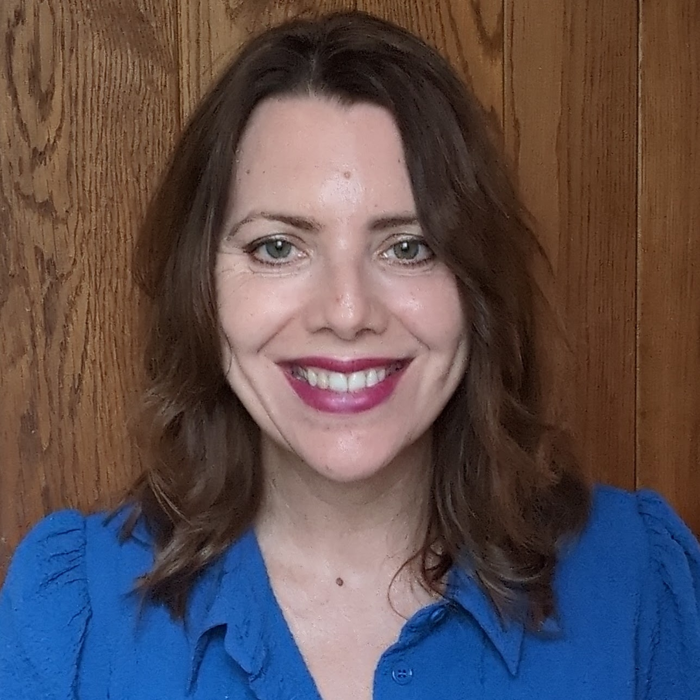Clinical psychology and voice disorders
Tuesday 8th October 2024, 5:00 PM - 7:00 PM (London Time)
Voice disorders are conditions affecting the production and quality of voice. There is longstanding interest in the interplay between psychological characteristics and voice use, with existing psychological conceptualisations (see recommended reading list below) proposing interactions between cognitive-behavioural, interpersonal, and personality factors and voice symptoms.
What is this short course about?
This presentation aims to provide an overview of research investigating psychological features in voice disorders. It will discuss psychological factors which may be relevant in the development and maintenance of voice disorders. It will introduce psychological principles and considerations which may be useful to understanding and working with voice difficulties.
Who is the short course for?
The presentation might be of interest to anyone working with people who experience voice difficulties or vocal health challenges. It might be of interest to those interested in increasing their familiarity with psychological concepts related to voice use. While based mostly on clinically oriented research and practice, the presentation may be of interest to those working both within and outside clinical contexts.
What is the format?
The presentation will include lecture-style content and case examples. It aims to provide a balance between theory and practical application, including suggestions for the use of psychological skills when working with people experiencing voice difficulties. There will be opportunity for questions and discussion in the final 10 minutes of the presentation.
Recommended reading list (full references to be given in presentation):
Aldridge-Waddon, L., Hiles, C., Spence, V., & Hotton, M. (2023). Clinical Psychology and Voice Disorders: A Meta-Analytic Review of Studies Assessing Psychological Characteristics Across Individuals With and Without Voice Disorders. Journal of Voice.
Baker, J. (2008). The role of psychogenic and psychosocial factors in the development of functional voice disorders. International journal of speech-language pathology, 10(4), 210-230.
Butcher, P., Elias, A., & Cavalli, L. (2007). Understanding and treating psychogenic voice disorder: A CBT framework. John Wiley & Sons.
Gray, H., Coman, L., Walton, C., Thorning, S., Cardell, E., & Weir, K. A. (2021). A comparison of voice and psychotherapeutic treatments for adults with functional voice disorders: a systematic review. Journal of Voice.
Kollbrunner, J., & Seifert, E. (2017). Encouragement to increase the use of psychosocial skills in the diagnosis and therapy of patients with functional dysphonia. Journal of Voice, 31(1), 132-e1.
Miller, T., Deary, V., & Patterson, J. (2014). Improving access to psychological therapies in voice disorders: a cognitive behavioural therapy model. Current opinion in otolaryngology & head and neck surgery, 22(3), 201-205.
🏷️ Price £30 (UK VAT inclusive)
🎥 Recording automatically sent to all who book (even if you cannot attend live)
▶️ Rewatch as many times as you like
📜 Certificate of attendance available
Dr Luke Aldridge-Waddon
Dr Luke Aldridge-Waddon (he/him) is a Clinical Psychologist working within the NHS and in independent practice. His clinical and research interests focus on psychological features in clinical health groups. He has a special interest in psychological perspectives in vocal health and voice care, and he is a recipient of prizes from the British Voice Association (Van Lawrence Prize, 2023) and Dysphonia International (Travel Award) in recognition of his research on clinical psychology and voice disorders.

Attend this course for as little as £22 as part of the Voice Professional Training CPD Award Scheme.
Learn MoreSorry, this is an archived short course...
We have plenty of upcoming short courses coming soon. See details of some of them below or look at the full list of short courses.

Tuesday 13th January 2026
5:00 PM - 6:30 PM
Tuesday 20th January 2026
5:00 PM - 6:30 PM
Tuesday 27th January 2026
5:00 PM - 6:30 PM
Tuesday 3rd February 2026
5:00 PM - 6:30 PM
Tuesday 10th February 2026
5:00 PM - 6:30 PM
(London Time)
Introduction to Postgraduate Academic Skills - Join Live!

Debbie Winter
Are you ready to elevate your academic journey? Hosted by our very own Debbie Winter, join our comprehensive Introduction to Academic Skills course, designed to equip you with essential tools and strategies for success in higher education. Perfect for bridging the gap between undergraduate and postgraduate study, this course offers a pathway to our full MA for students without an existing degree. We offer both live, interactive sessions and standalone, pre-recorded content.

Thursday 15th January 2026
5:00 PM - 7:00 PM
Thursday 22nd January 2026
5:00 PM - 7:00 PM
Thursday 29th January 2026
5:00 PM - 7:00 PM
Thursday 5th February 2026
5:00 PM - 7:00 PM
Thursday 12th February 2026
5:00 PM - 7:00 PM
(London Time)
Trauma-Sensitive Voice Professional Certificate with Dr Elisa Monti

Dr Elisa Monti
Updated for 2026, this five-part certificate course is designed to help participants learn the theory and practice of trauma-sensitive approaches. The concepts and activities included are tailored to meet the needs of voice specialists who want to acquire more specific tools to navigate the space with their students and colleagues.

Monday 9th February 2026
5:00 PM - 7:00 PM
(London Time)
Certificate in Applied Voice Pedagogy with Adam Roberts

Adam Roberts
Spring Immersive - live and interactive learning! This 12-week online programme is designed for voice professionals committed to deepening applied voice pedagogy skills and advancing professional practice. The course offers a rich environment to reflect on your teaching philosophy and develop applied pedagogical techniques. It is ideal for voice teachers, coaches, therapists, and performers seeking to bridge foundational knowledge with practical, student-centered applications.
